What Is The Difference Between A Smart Motor And A Regular Motor?
- Xie
- Jul 28, 2025
- 9 min read
Understanding Smart Motors and Regular Motors
When comparing Smart Motors vs Regular Motors, it's crucial to recognize their differing functionalities and applications. Smart motors are equipped with advanced technology, allowing for precise control and monitoring of performance. These motors adapt to changing load conditions, increasing efficiency and prolonging their lifespan. Regular motors, on the other hand, function on a more traditional basis, lacking the ability to self-regulate or provide real-time feedback.
If you have any questions or are interested in our products, feel free to contact us
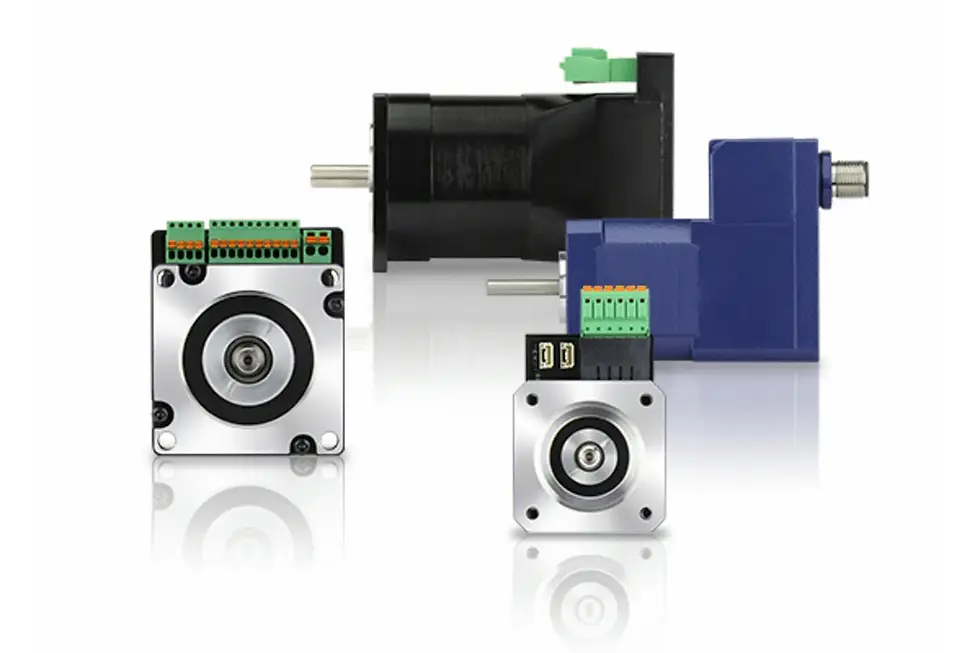
Key Features of Smart Motors
Smart motors offer a plethora of features that set them apart from their regular counterparts. They typically include built-in sensors that provide information on temperature, speed, and vibration. This data allows for predictive maintenance and alerts users to potential issues before they result in significant downtime or damage. Moreover, their ability to connect through IoT devices enhances their operational capabilities, making them suitable for automation in modern applications.
Advantages of Regular Motors
Despite the advanced benefits of smart motors, there are advantages to using regular motors. They generally come with a lower upfront cost and simpler installation processes. For less demanding applications where advanced features aren’t necessary, regular motors remain a reliable choice. Their straightforward design means fewer components, which can lead to easier maintenance and repair.
Cost-effectiveness for simple tasks
Easier maintenance and repair
Reliable performance in basic applications
When weighing Smart Motor vs Regular Motor, it’s essential to consider your specific application and requirements. The choice can drastically affect efficiency, maintenance, and ultimately the success of your projects.
Feature | Smart Motor | Regular Motor |
Cost | Higher | Lower |
Maintenance | Predictive capabilities | Manual checks |
Efficiency | Adaptive | Standard |
Application | Advanced automation | Simple tasks |
Final Thoughts
Ultimately, the choice between Smart Motor vs Regular Motor hinges on your operational needs and budget considerations. Carefully evaluate the pros and cons to ensure you're equipping your system for success.
Assess specific application requirements
Consider long-term efficiency and savings
Evaluate existing systems for compatibility
Investing in a smart motor can lead to remarkable gains in efficiency and reliability.
Explore more insightful articles like this one – we have plenty more for you to discover here!
Key Differences Between Smart and Traditional Motors
When examining the differences between a Smart Motor vs Regular Motor, the first aspect to consider is their operational capabilities. Smart motors incorporate advanced technology, such as IoT connectivity, allowing real-time monitoring and data collection. In contrast, traditional motors typically lack these smart features, resulting in limited operability and oversight. This significant advancement influences their energy efficiency and reliability during use. Here is our homepage
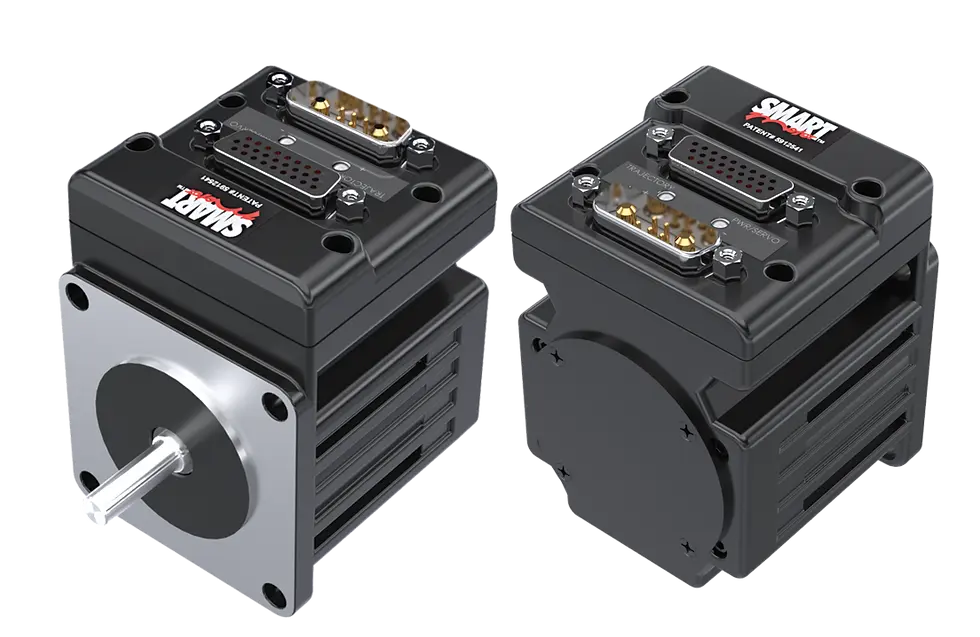
Energy Efficiency
Energy efficiency is a critical factor distinguishing Smart Motors from Regular Motors. Smart motors are designed to optimize energy consumption by adapting to varying loads and demands. This results in substantial cost savings over time. Traditional motors, on the other hand, often operate at a fixed power level, which can lead to higher energy waste and increased operational costs.
Maintenance and Diagnostics
Another key difference lies in maintenance. Smart Motors offer built-in diagnostics that provide alerts about potential issues before they become significant problems. Regular Motors do not have these capabilities, requiring manual inspections, which can be more time-consuming and costly. This proactive approach in smart motors enhances overall machinery longevity.
Connectivity: Smart motors provide real-time data.
Efficiency: Smart motors adapt to load changes.
Maintenance: Smart motors notify potential issues.
The choice between Smart Motor vs Regular Motor hinges on your specific needs. With more efficiency and better monitoring, smart motors play a crucial role in industries aiming for greater productivity.
Feature | Smart Motor | Regular Motor |
Energy Efficiency | High | Moderate |
Maintenance | Automated Alerts | Manual Inspection |
Connectivity | IoT Enabled | None |
Conclusion
Adopting Smart Motors can lead to improved performance and reduced operational costs. Understanding the Smart Motor vs Regular Motor dynamics will aid in making an informed decision.
Evaluate your energy needs.
Consider future scalability.
Assess maintenance costs.
Investing in smart technologies can transform the efficiency of your operations.
Benefits of Using Smart Motors Over Regular Motors
When discussing Smart Motor vs Regular Motor, it’s essential to understand the advantages that smart motors bring to the table. Smart motors utilize advanced technology, enabling features such as real-time monitoring and diagnostics, which significantly enhance performance and efficiency. Unlike regular motors, they can adapt to varying load conditions, ensuring optimal operation while saving energy. This adaptability not only extends the life of the motor but also reduces maintenance costs, making smart motors a sound investment for industries.
Efficiency and Energy Savings
One of the key distinctions in the Smart Motor vs Regular Motor debate lies in their efficiency. Smart motors utilize algorithms to optimize speed and torque, minimizing energy wastage. In contrast, regular motors often operate at fixed speeds, leading to energy inefficiencies. Businesses using smart motors experience a noticeable reduction in power consumption, leading to lower utility bills and a smaller carbon footprint over time.
Advanced Control and Integration
Smart motors offer unparalleled control capabilities, utilizing digital communication to integrate seamlessly with existing automation systems. This feature allows for remote monitoring and adjustments, enhancing operational flexibility. Regular motors, without such capabilities, may require manual intervention for monitoring and control, increasing downtime and labor costs.
Real-time monitoring
Energy-efficient operation
Reduced maintenance costs
Seamless integration with automation
In summary, the choice between Smart Motor vs Regular Motor can greatly influence operational efficiency and cost. The benefits of adopting smart motors are compelling and well worth the consideration.
Feature | Smart Motor | Regular Motor |
Energy Efficiency | High | Moderate |
Monitoring | Real-time | Manual |
Cost Savings | Long-term | Short-term |
Future Trends
The future of motors leans increasingly toward smart technologies, which continue to evolve and incorporate more sophisticated features. As industries embrace automation, smart motors prove to be indispensable for enhanced productivity and sustainability.
Increased use of AI
Enhanced connectivity
Greater customization options
"Switching to smart motors is not just about modernizing; it's about future-proofing your operations."
Explore more insightful articles like this one – we have plenty more for you to discover here !
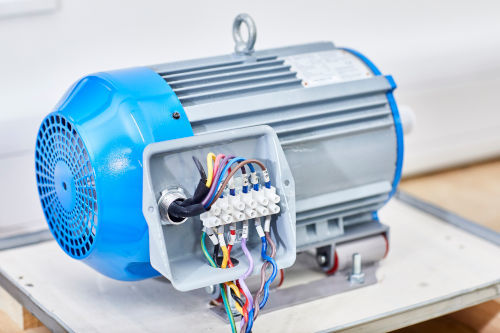
Applications of Smart Motors in Modern Technology
In today's rapidly advancing technological landscape, the comparison of Smart Motor vs Regular Motor is more relevant than ever. Smart motors incorporate advanced sensors and control systems that enhance performance, efficiency, and reliability. Unlike regular motors, which operate on fixed parameters, smart motors offer real-time data analytics and adaptability, making them ideal for various applications in modern technology.
Industrial Automation
Smart motors play a pivotal role in industrial automation, where precise control is paramount. Traditional motors often lack the sophisticated feedback systems that smart motors possess, leading to inefficiencies. With features like variable speed control and remote monitoring, smart motors significantly reduce energy consumption, thus saving on operational costs while optimizing production processes.
To meet the ultimate in efficiency and responsiveness in modern applications, many engineers and designers are turning to more specialized powertrains. If you're looking for a drive solution that combines speed and stability, the Speed-focused Motor is the ideal choice. It not only improves overall operating efficiency, but also demonstrates superior acceleration and precise control in mission-critical applications.
Electric Vehicles
The evolution of electric vehicles (EVs) has also seen a stark comparison between Smart Motor vs Regular Motor. Smart motors are integral to EV technology, providing real-time data that optimizes battery usage and vehicle performance. Regular motors cannot offer the level of integration and efficiency that smart motors do, often leading to a subpar driving experience.
Robotics and automation
HVAC systems
Renewable energy applications
The flexibility of smart motors enables them to adapt to different environments, making them a formidable choice in numerous sectors.
Feature | Smart Motor | Regular Motor |
Real-time Monitoring | Yes | No |
Energy Efficiency | High | Moderate |
Control Flexibility | Adaptive | Fixed |
Healthcare Devices
In the healthcare field, smart motors are revolutionizing medical equipment, ensuring precision in devices like MRI machines and surgical robots. Regular motors struggle to provide the same level of accuracy and control necessary for such critical applications.
In many applications where high load capacity is required, high speed is not enough. A drive solution with strong torque output is the key, and the Torque -focused Motor is designed to cope with high loads and high resistance environments, and maintains a stable and strong power output at low speeds, which is widely used in industrial automation, heavy machinery, and lifting and lowering systems in the smart home.
Adaptive technology
Higher performance metrics
Reduced downtime
“Embracing smart motors is not just a step forward; it's a leap towards a more efficient and capable technological future.”
Explore more insightful articles like this one – we have plenty more for you to discover here !
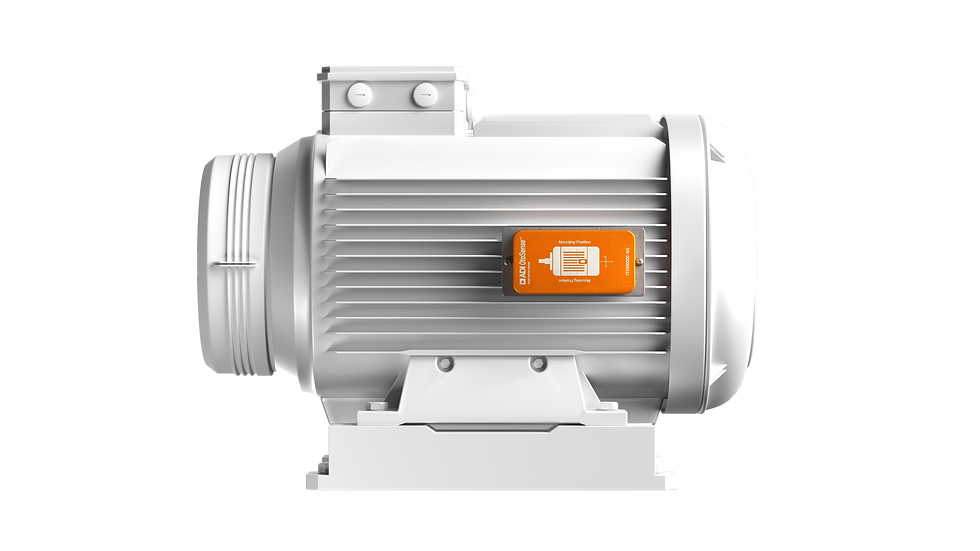
Energy Efficiency: Smart Motors vs Conventional Motors
When it comes to energy efficiency, the comparison between smart motors and regular motors is crucial for industries aiming to reduce operational costs and enhance productivity. Smart motors employ advanced technologies to optimize performance in ways that traditional motors simply cannot match. By dynamically adjusting their power consumption to meet demand, smart motors provide significant energy savings, which can lead to lower electricity bills and a reduced carbon footprint.
Key Differences
Understanding the differences will help you make an informed decision. Smart motors are equipped with sensors and controllers that monitor performance in real-time, optimizing energy use without sacrificing power. In contrast, conventional motors operate at fixed speeds, often leading to inefficiencies in energy consumption. This fundamental difference makes a compelling case for switching to smart motor technology.
Cost Considerations
While the upfront investment for smart motors may be higher than that of regular motors, their long-term savings often outweigh the initial costs. Companies can see a return on investment through decreased energy usage and maintenance costs. To illustrate, here are some cost factors to consider:
Initial Purchase Price
Installation Costs
Energy Savings Over Time
Maintenance Requirements
Better energy efficiency translates to significant cost reductions. Thus, shifting towards smart motors is a wise choice.
Aspect | Smart Motors | Regular Motors |
Energy Efficiency | High | Moderate |
Cost | Higher Initial | Lower Initial |
Maintenance | Low | High |
Conclusion
Investing in a smart motor could change the way you view energy consumption in your operations. Look into the benefits today, and see how these advanced systems can optimize your energy usage.
Explore Smart Motor options
Calculate potential savings
Consider future operational costs
“The shift towards smart motors is not just an upgrade; it's a revolution in energy efficiency.”
Future Trends: Smart Motor Innovations Ahead
As technology advances, the competition between smart motors and regular motors intensifies. Smart motors offer enhanced functionalities and data-driven capabilities that traditional motors simply cannot match. With IoT integration, they provide real-time monitoring, predictive maintenance, and greater energy efficiency. This makes the Smart Motor vs Regular Motor debate incredibly relevant as industries seek to improve operations and reduce costs.
Key Features of Smart Motors
One of the most compelling aspects of smart motors is their ability to communicate seamlessly. Unlike regular motors, they can send performance data to operators for analysis. This data can lead to improved efficiency and extended lifespans. Moreover, with built-in sensors, smart motors can adjust their performance based on real-time conditions, making them an attractive option for modern automation needs.
Here is our homepage
Cost Considerations
While the initial investment for smart motors is typically higher than regular motors, their long-term benefits can outweigh the costs. Reduced downtime and maintenance expenses are significant factors. As industries become more competitive, the Smart Motor vs Regular Motor discussion becomes essential in understanding the return on investment that organizations can expect.
To meet the ultimate in efficiency and responsiveness in modern applications, many engineers and designers are turning to more specialized powertrains. If you're looking for a drive solution that combines speed and stability, the Speed-focused Motor is the ideal choice. It not only improves overall operating efficiency, but also demonstrates superior acceleration and precise control in mission-critical applications.
Final Thoughts
In a rapidly evolving technological landscape, businesses must choose wisely between smart motors and regular motors. The benefits of innovation are clear, making the smart motor a critical consideration for future operations.
Explore more insightful articles like this one – we have plenty more for you to discover here !
"Investing in smart motors is an investment in the future of efficiency and innovation."
FAQs About Smart Motors and Regular Motors
As technology advances, the debate between Smart Motor vs Regular Motor continues to gain traction. Smart motors are equipped with communication capabilities, allowing them to relay information regarding their performance and health. In contrast, regular motors operate with simpler, traditional controls. Understanding these differences is key to selecting the appropriate motor for your specific needs.
What Makes Smart Motors Unique?
Smart motors integrate advanced features that regular motors lack, such as real-time feedback and diagnostics. This enables proactive maintenance and enhances operational efficiency. Their ability to connect to IoT devices also allows for remote monitoring, marking a significant contrast when comparing Smart Motor vs Regular Motor. This interconnectivity leads to reduced downtime and improved productivity.
Applications of Smart and Regular Motors
Smart motors find their place in complex automation systems, offering versatility and precision. Regular motors, however, are often used in simpler applications where advanced control functions are unnecessary. When assessing Smart Motor vs Regular Motor, considering your application’s requirements becomes critical.
Energy Efficiency: Smart motors usually consume less power.
Cost: Regular motors generally have a lower upfront price.
Maintenance: Smart motors alert users to issues before they escalate.
A comparison of features can further illustrate the benefits of Smart Motor vs Regular Motor.Explore more insightful articles like this one – we have plenty more for you to discover here !
Choosing the Right Motor
When deciding between Smart Motor vs Regular Motor, evaluate the specific needs of your project. Factors such as energy efficiency, budget, and application complexity will guide your choice. Knowing the unique attributes and advantages of each motor type will significantly enhance your decision-making process.
Evaluate application complexity.
Consider energy efficiency.
Assess long-term maintenance needs.
"Smart motors are not just an improvement; they are a leap towards future automation."



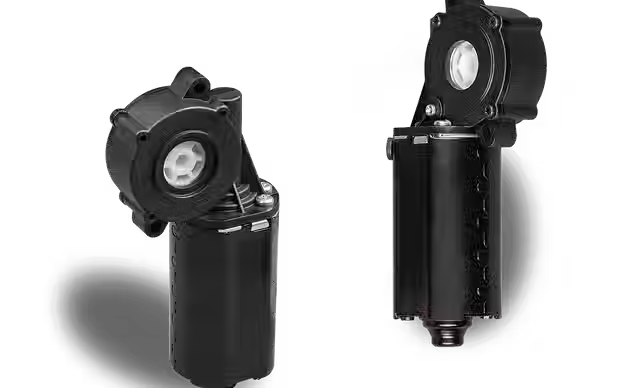
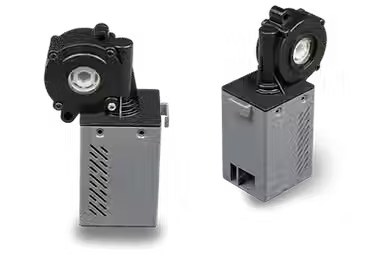

Comments